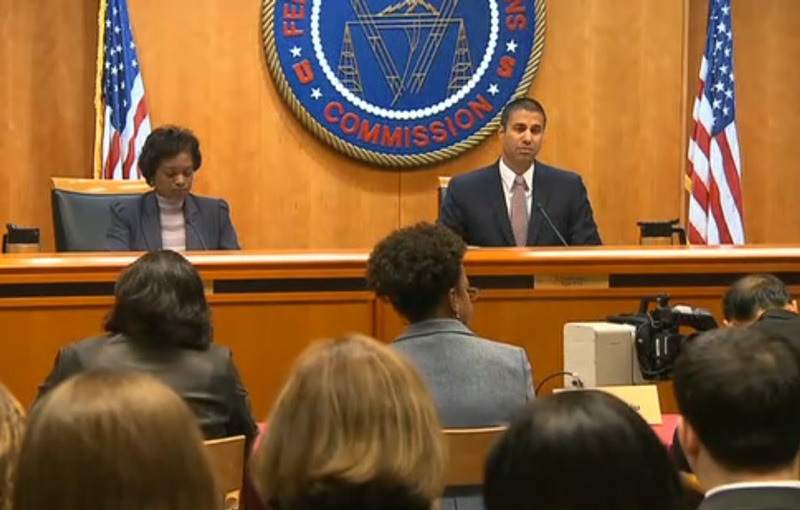Net neutrality ends June 11, Senate Democrats force last-minute vote
A "Restoring Internet Freedom" order ending net neutrality, approved in a 3-2 vote in December, will finally take effect on June 11, the U.S. Federal Communications Commission said on Thursday.
Spearheaded by chairman Ajit Pai, a Republican with ties to Verizon, the order will undo Title II limits ushered in during the Obama administration.
"The Internet wasn't broken in 2015, when the prior FCC buckled to political pressure and imposed heavy-handed Title II rules on the Internet economy," Pai said in a statement. "It doesn't make sense to apply outdated rules from 1934 to the Internet, but that's exactly what the prior Administration did."
The public has been promised protection by the Federal Trade Commission, but critics — including activist groups, and corporations such as Apple — have worried that without the internet being treated as a Title II utility, providers will feel free to preferentially throttle bandwidth, or even force people to pay extra for reasonable access to specific websites and services. That could have a severe impact on startups unable to make deals with ISPs.
Opponents of net neutrality, including Pai and the administration of President Donald Trump, view it as unnecessary government regulation that stifles innovation. They believe that consumers can flee a misbehaving ISP, and that the Federal Trade Commission, and not the FCC, should be used to punish internet service providers who abuse open access.
Supporters of net neutrality fear that without protections in place up front, service providers like Spectrum or Verizon will be able to create a tiered internet, where certain services, like Apple Music or the App Store, could see their speeds throttled or even blocked. Customers, in this hypothetical situation, might need to pay more for true access to various services. Supporters also point out that consumer choice will prevent ISP misdeeds — a key argument used by Pai to promote the repeal — isn't viable, because of the lack of actual choices for consumers across a large area of the country.
Opposition has been strong enough that using a discharge petition, Democrats in the U.S. Senate have forced a vote on reinstating net neutrality. Massachusetts Democratic Sen. Ed Markey told CNN and other news agencies he hopes a vote can take place next week, and that it must happen by June 12 under terms of the Congressional Review Act.
While the measure appears to have enough momentum to pass the Senate, it must also make it through the Republican-dominated House of Represenatives, and survive a possible veto by President Donald Trump.
Apple has opposed the net neutrality repeal because of the potential impact on its devices and services. A person might be less likely to use Apple Music or buy the latest iPhone, for example, if they expect their online bandwidth to be hampered.
"An open internet ensures that hundreds of millions of consumers get the experience they want, over the broadband connections they choose, to use the devices they love, which have become an integral part of their lives," the company wrote in an August letter to the FCC.
 Roger Fingas
Roger Fingas











 Christine McKee
Christine McKee
 William Gallagher
William Gallagher
 Malcolm Owen
Malcolm Owen
 Amber Neely
Amber Neely

 Marko Zivkovic
Marko Zivkovic

 Andrew Orr
Andrew Orr







